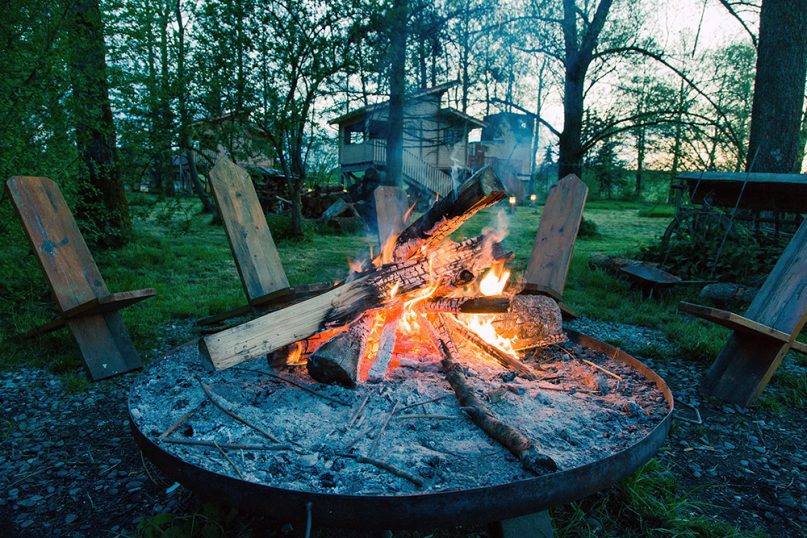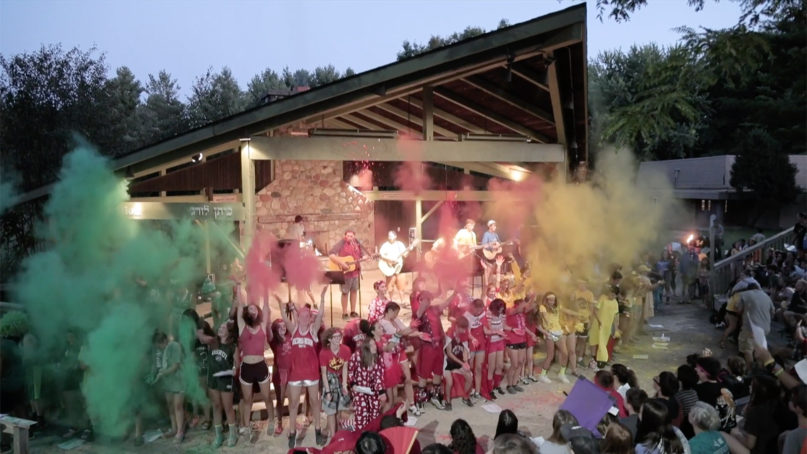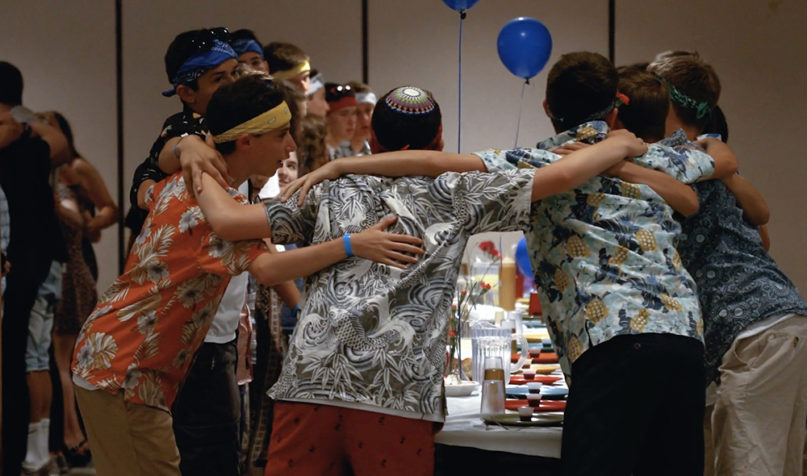(RNS) — Emily Crane and her two daughters broke down and cried after the announcement that their beloved Jewish summer camp in Oconomowoc, Wisconsin, would not open this summer.
The decision by the Union of Reform Judaism to cancel all 15 of its overnight camps due to the coronavirus pandemic was a huge — though not unexpected — blow for many Jewish families.
“It was a very sad moment,” said Crane, a mother of three from Highland Park, Illinois, who attended the same camp herself growing up.
“They have a sense of what’s going on in the world,” Crane said of her two daughters, Abby and Natalie. “But there were still a lot of tears.”
It would be hard to overemphasize the importance of camp for the Jewish community in the United States and Canada.
“It’s the absolute lifeline to Jewish continuity,” said Ruben Arquilevich, vice president of camps for the Union for Reform Judaism who called off camp last week.
Multiple studies have shown that kids who participate in overnight summer camps are far more likely to be engaged in Jewish life in college and beyond. More than any other institution, camps provide the glue for future Jewish commitments.

Photo by SeppH/Creative Commons
A 2018 study by the Reform movement, the largest of Judaism’s three main U.S. branches, found that 81% of camp alumni said “being Jewish is very important in my life.” That’s about twice the percentage of Reform Jews who gave the same answer to that question in the 2013 Pew study of Jewish Americans.
Which is why the Reform movement’s decision to cancel camp this year — a first in the camp’s 73-year history and one affecting an estimated 10,000 children— was so unprecedented.
The camps, with sessions between one and eight weeks, feature plenty of outdoor activities: swimming, hiking, horseback riding, water skiing, relay races, toasting s’mores by an open flame. There’s also lots of Jewish programming, Shabbat singalongs, prayer, Hebrew language jams and outdoor movies about Jewish values.
Jewish parents are as invested in camp as their kids.
At Camp Tel Yehudah, part of the Young Judaea group, between 30 and 40% of campers have parents who also attended the camp as kids.
“I speak to parents every day,” said David Weinstein, the camp director. “They all say, ‘We really hope camp will be open for our kids and for us.’”
Tel Yehudah, located in Barryville, New York, in the region known as the Catskills, has not yet decided to cancel.
Many are awaiting guidance from the American Camp Association, which is expected to issue guidelines developed with the Centers for Disease Control at a special town hall meeting on Friday (May 8). The highly communicable coronavirus has killed more than 75,000 Americans and shows little sign of slowing.
Camp directors must also consider state orders regarding summer camps and the size of group gatherings allowed in public places. Weinstein and his team at Tel Yehudah, for example, are waiting on more guidance from New York Gov. Andrew Cuomo.

Campers throw colored powder into the air during an event at URJ Olin-Sang-Ruby Union Institute in Oconomowoc, Wisconsin. Video screengrab
And then there are camp values to add to the mix.
“If the guidelines say that we have to do social distancing at camp, and kids have to (not) be within six feet of each other and have to wear masks, it would be antithetical to the camp experience,” said Rabbi Mitchell Cohen, national director of Ramah, the camping arm of Conservative Judaism.
Camp Ramah Darom, a Jewish camp in Clayton, Georgia, has already gone ahead and canceled. Nine other overnight camps, and four day camps — all part of the Ramah network — have yet to cancel.
Others, such as Tamarack camps, a group of Jewish camps based in Bloomfield Hills, Michigan, have also canceled the summer season.
There are more than 300 Jewish overnight and day camps across the country, according to the Foundation for Jewish Camp.
Many of those camps are already working on developing online programs this summer. In addition, some Jewish overnight camps may become socially distanced family retreats this summer, the Jewish Telegraphic Agency reported.
The decision to cancel camps carries a heavy financial toll. Some camps have applied and received loans from the Small Business Administration designed to keep workers on the payroll. But nearly all the camps will have to raise more money to stay afloat.
The Harold Grinspoon Foundation has recently committed up to $10 million in matching grants to Jewish overnight camps. The foundation will match dollar for dollar any amount families have already made in prepayments or deposits if those families are willing to convert those payments to camp donations.
In lieu of camp, many Jewish kids will have to find other ways to occupy their time.
Crane, whose two daughters won’t be attending camp, said she has discussed summer school classes and babysitting as alternatives. She concedes those won’t be nearly as attractive to her girls, or as she put it: “It’s a bummer of a summer.”





